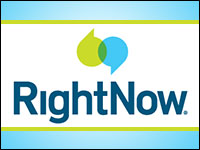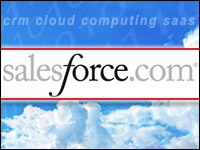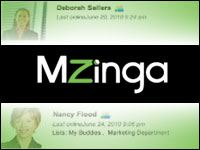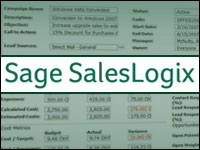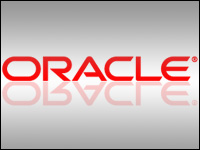
Microsoft Dynamics CRM provides customers with rich sales force automation capabilities in addition to marketing automation, customer data management, customer service and analytics, Bill Patterson, director of product management for Microsoft Dynamics, told CRM Buyer. It offers customers the choice of an on-premises deployment, partner-hosted option or cloud-based option.
Microsoft Dynamics CRM can help companies improve sales planning, automate lead systems, streamline account management, and boost sales productivity by improving collaboration to ensure everyone has the latest information, Patterson continued. It also can help enhance pipeline management, simplify workflows, and gather better business intelligence.
Sales Productivity Boost
Companies have begun to recognize that sales automation that is effective for sales teams can boost sales productivity, Rebecca Wettemann, vice president of research at Nucleus Research, told CRM Buyer. To meet this requirement, Microsoft Dynamics CRM has improved its usability, customization features, mobile capability and integration.
“They’re tightly integrated with email,” Wettemann pointed out. “They can mine that data.”
“Microsoft Dynamics CRM offers familiar, intelligent and connected experiences that aim to provide sales, marketing and service professionals with tools that are natural and personal,” Patterson said. By gathering information that is insightful and actionable, an organization can become more unified and collaborative.
Social media functionality is a trend that is allowing sales and customer service to become more integrated, Wettemann noted. Sales teams benefit with better awareness about customer service issues.
“It actually makes a lot of sense,” she said. “Sales never wants to be surprised.”
Microsoft Dynamics can be used with other Microsoft technology such as SharePoint to create collaborative platforms that make it easier to share information, Brent Leary, cofounder and partner at CRM Essentials, told CRM Buyer.
“It’s a step in that direction,” he noted.
Microsoft Dynamics CRM’s familiar sales tools include comprehensive CRM functionality, a native Microsoft Outlook experience, and embedded Microsoft Office features, Patterson explained. Intelligent sales tools include features that help sales professionals intuitively manage leads and sales territories, identify optimal products and areas for improvement, and visualize key performance indicators using real-time dashboards.
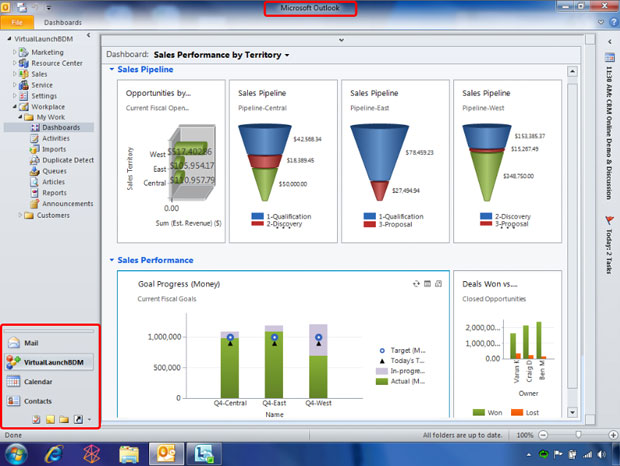
Microsoft Dynamics CRM’s inherent integration with Outlook might be particularly attractive to more conservative customers, Ray Wang, principal analyst at Constellation Research, told CRM Buyer.
“It’s very important for customers to have that,” he pointed out.
“This is a feature that customers and partners repeatedly tell us boosts user adoption and productivity, as the learning curve for a Microsoft-based product is low,” Patterson concurred.
Microsoft Dynamics CRM also includes real-time communication tools, document management capabilities, flexible workflows, easy-to-use portal solutions, and integration with online data sources, Patterson added.
Key Strengths
The key strengths of Microsoft Dynamics CRM are usability, a focus on productivity, and tight integration with Outlook, Wettemann said.
“That’s probably the biggest benefit,” she emphasized.
The latest offering, Microsoft Dynamics CRM 2011, offers mobile functionality on any HTML 4.0 compliant mobile device, Patterson said. This add-on mobile functionality is offered to customers without any additional fees.
The latest Microsoft Dynamics CRM edition also includes capabilities for more complex selling models such as team selling, Wettemann noted, making the application a more competitive, sophisticated offering. Content management and social media connectors, as well as more support for analytics, have also been added in the latest edition, allowing users to analyze data more easily without relying on IT departments to create reports.
Collaborative analytics provides users with the ability to make good decisions quickly and drive business values, Patterson pointed out. In addition, Microsoft Dynamics CRM allows users to customize applications, layouts, workflows and more. They can also build entirely new, non-CRM applications with a point-and-click application framework called “xRM.”
Basic CRM components can be used to build a CRM solution, and xRM allows partners to develop custom applications, said Wetteman.
Logical and Pragmatic Choice
“Microsoft Dynamics CRM is a logical and pragmatic choice over competing products, particularly in difficult economic times,” Patterson emphasized. Customers benefit from the solution’s familiarity, time to value, flexibility, total cost of ownership, and ecosystem.
“Overall, Microsoft Dynamics CRM provides a comprehensive solution to customers,” he added, “and if a customer needs additional functionality or a specific customization to meet a unique business need, Microsoft Dynamics CRM is easily customizable.”
Competitive Pricing for All
“Microsoft Dynamics is committed to helping organizations of all sizes and across all industries,” Patterson stated. With the release of Microsoft Dynamics CRM Online last month, the solution is now available to organizations in 40 markets and 41 languages.
“Microsoft Dynamics CRM Online is priced very competitively at (US)$44 per user per month, including support and training,” Patterson said, adding that promotional pricing is currently available until June 30th. “Microsoft Dynamics CRM on-premises pricing starts at less than $1,100 per user.”
Although Microsoft Dynamics CRM is a complex, full-featured solution, very small businesses need not be intimidated by it. Good usability and competitive pricing make it attractive in spite of its complexity, Wetteman said, and customizing it is easy, even for non-programmers.



